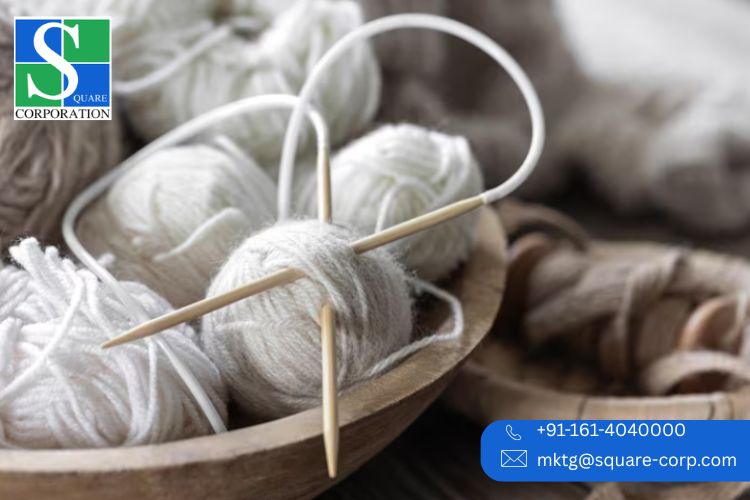Ever wondered what keeps India’s textile industry spinning — quite literally? It’s cotton yarn, the backbone of every garment, fabric, and furnishing. From sustainable blends to luxury weaves, India’s mills have mastered it all. And if you’re exploring a trusted Spinning mill in Punjab, you’re already looking in one of the country’s most vibrant textile hubs.
India’s Legacy in Cotton Yarn Manufacturing
India is one of the world’s largest producers and exporters of cotton yarn, supplying over 30% of global demand, according to data from the Ministry of Textiles, Government of India. With deep-rooted traditions in cotton cultivation and a strong industrial base, the country blends heritage craftsmanship with state-of-the-art spinning technology.
Regions like Gujarat, Tamil Nadu, and Punjab have emerged as textile powerhouses, where modern spinning units work hand-in-hand with traditional expertise. This dynamic ecosystem ensures consistent quality, faster production, and sustainable practices — making Indian cotton yarn a preferred choice globally.
Why Indian Cotton Yarn Stands Out
There’s something distinctly superior about Indian cotton yarn. Here’s why it continues to lead global textile markets:
- Raw Material Excellence: India grows premium varieties like Shankar-6 and Suvin — prized for their strength, softness, and fiber length.
- Advanced Spinning Technology: Indian mills use world-class machinery, from Rieter to Trützschler systems, ensuring consistent yarn quality.
- Export-Ready Quality: Cotton yarn from India meets stringent international standards demanded by brands in Europe and the U.S.
- Sustainability Focus: Increasing adoption of organic cotton and eco-friendly dyeing practices is setting a new benchmark for global sustainability.
It’s no surprise that Indian cotton yarn is now used by global fashion houses, sustainable apparel brands, and even high-end home textile makers.
Top Cotton Yarn Manufacturing Hubs
The cotton yarn manufacturing landscape is spread across several key Indian states, each contributing uniquely to the sector’s success:
- Punjab: Known for modern textile infrastructure and export-driven spinning units.
- Tamil Nadu: Houses large-scale spinning clusters in Coimbatore and Tirupur, often called the “Manchester of South India.”
- Gujarat: The cotton heartland of India, known for raw cotton availability and integrated production chains.
- Maharashtra: Focuses on blended yarns and innovative fabric development for the global market.
Each region contributes to the diversity and adaptability of Indian yarn, catering to everything from premium suiting fabric to everyday wear.
What Makes a Great Cotton Yarn Manufacturer?
Choosing the right yarn supplier can determine the quality of your final product. The best Cotton Yarn Manufacturer follows a rigorous process that ensures quality, consistency, and reliability. Here’s what to look for:
- Consistency in Yarn Count: Reliable producers maintain strict quality control to ensure uniformity.
- Certified Raw Materials: Sourcing from Organic Cotton Farms ensures the yarn is ethically and sustainably produced.
- Modern Testing Facilities: Labs equipped with Uster and Premier equipment for tensile strength, evenness, and hairiness testing.
- Eco-Conscious Production: Use of renewable energy and water-efficient dyeing methods.
Brands seeking both quality and responsibility increasingly partner with such forward-thinking mills, making India a leader in ethical textile production.
India’s Textile Integration Advantage
Another reason behind India’s success in yarn production is its vertically integrated textile ecosystem. Manufacturers collaborate closely with Wholesale fabric suppliers in India, ensuring seamless conversion from yarn to finished textile. This interconnected approach results in faster lead times, better inventory control, and consistent product standards.
India’s Contribution to Sustainable Textiles
India is also taking bold steps toward sustainability. With global buyers prioritizing eco-friendly sourcing, Indian mills have begun emphasizing organic cotton, recycled fibers, and closed-loop production systems. As per Textile Value Chain reports, organic cotton production in India contributes over 50% to the world’s supply — a testament to the nation’s growing green footprint.
FAQs About Cotton Yarn Manufacturing in India
1. Which Indian states are leading in cotton yarn production?
Gujarat, Tamil Nadu, Punjab, and Maharashtra are the leading cotton yarn manufacturing regions, known for modern infrastructure and skilled workforce.
2. Why is Indian cotton yarn preferred globally?
Indian yarn offers superior quality, competitive pricing, and sustainable production, making it ideal for apparel, home textiles, and industrial applications.
3. Are Indian manufacturers adopting eco-friendly practices?
Yes, most leading producers are integrating organic cotton, renewable energy, and water-saving technologies to promote sustainability.
4. Can Indian mills produce customized yarn blends?
Absolutely. Many Indian mills specialize in customized blends — cotton-polyester, modal, bamboo, and organic mixes — tailored for specific fabric applications.
Also Read: Moisture Management Yarns: Enhancing Comfort in Sportswear
Final Thoughts
India’s cotton yarn manufacturers are not just producers; they’re innovators shaping the global textile future. With an unmatched blend of technology, sustainability, and craftsmanship, they continue to weave a legacy of quality and trust. From Punjab’s spinning mills to Gujarat’s cotton fields — the thread of excellence runs strong through every fiber of Indian textile manufacturing.
Blog development Credits:
This blog was conceptualized, developed, and refined by the expert team at Square Corporation, ensuring high-quality research, authentic writing, and SEO-focused enhancements..



